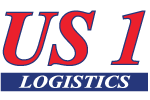Tips for Starting your Brokerage Company the Right way.
Starting a brokerage company can be a difficult and daunting task. There are a number of things that you have to consider as you decide what is the best way to start your new business. I am not writing this as a “how to” step by step list that is all inclusive when it comes to starting a brokerage company but want to give you things to think about.
I am not writing this as a “how to” step by step list that is all inclusive when it comes to starting a brokerage company but want to give you things to think about.
I am going to assume you have a customer base, if not, check out some of my articles on sales and building customer relationships.
First of all, do you really want to start a new brokerage company or become an agent for an established company?
Being an agent gives you a number of advantages right off the start. In fact, pretty much everything I am going to discuss below goes away if you go the agent route.
Why would you want to be an agent? Besides what I just said about most of the things I am going to write about below going away, you also get an established ‘brand’ to sell. You don’t have to worry about carriers or customers not wanting to do business with a start-up. Yes, that is an issue, I promise
In addition, if the company you sign up with has a truckload division you don’t have to approach your customers as ‘just another broker’.
Even if you don’t plan on using the company’s trucks you can still use the fact that you have access to trucks as a sales point.
What are the negatives to being an agent? You are not your own boss, you will have to follow the procedures and policies of the company you sign on with. You will also lose a certain amount of the potential profit. Although it can vary from company to company you will probably receive between 60% to 70% of the profit per load. That might sound like a lot, but when you consider the advantages of being an agent you may find it really isn’t.
Plus, you can always slowly build a small brokerage company while you are an agent as long as your contract doesn’t prevent it.
Don’t sign a contract with a trucking company that has a non-compete in it or makes your customers their customers.
But, what if you just want your own company and to be the one in charge? Well, here are some things to consider.
- Don’t spend too much on your software to start with. There are a lot of companies that offer competitive software solutions to a startup brokerage.
- Plan on your customers paying you in about 45 days. If they pay faster, great, but prepare for 45 days. So, if you plan on doing $100,000.00 per month, you will need about
 $150,000.00 in cash to support your accounts receivable. This is an exact number because it will depend a lot on your profit per load. But, if you plan using this calculation you should have enough cash for unexpected thing – which always happen.
$150,000.00 in cash to support your accounts receivable. This is an exact number because it will depend a lot on your profit per load. But, if you plan using this calculation you should have enough cash for unexpected thing – which always happen. - Do you factor? See #2 above. If you decide to factor then, you will need a lot less cash on hand at start up. I would still suggest above 40% of what your expected monthly revenue is. That is probably too high but it will keep you liquid during the start up. So, if you plan on $100,000.00 per month in revenue the try to have about $40,000.00 in cash when you start. Yes, that number is higher than what you will probably actually need.
- Decide if you want your factoring company to take care of paying your carriers as well. Many factoring companies offer this and it can be an effective way to ensure your carriers are paid in a timely fashion and perhaps reduce your workload.
- Get contingent liability and cargo insurance. Don’t assume that since you are not a carrier you do not need insurance. Contingent insurance is not that expensive for a brokerage only company.
- Join the TIA, you can get a lot of valuable information and legal documents from them.
- Keep your business finances (check book) and personal separate. Don’t co-mingle money.
- Develop carrier relationships. This is just as important as developing customer relationships and way too many people forget that. If you can develop a good enough relationship with your carriers you can search for freight that meets their particular needs. This is win/win for both you and the carrier.
- If you don’t know how to rate freight, use tools provided by Truckstop.com or DAT to help you rate loads. Don’t spend too much on this, there are inexpensive options. You can even do a load search to see what other brokers are paying carriers to run a particular lane. Take that information, add in your profit and you have a good guestimate as to what you should charge your customers.
As I said, this is not an all inclusive list.
The first thing you need to decide is if you would rather be an Agent or Start your Own Company



How much are each state sticker to run loads to those states I’m my own boss and running my own loads ?